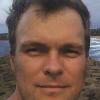Ever since the arrival of the coronavirus, there have been segments of the church that have been criticized for not taking the pandemic seriously. Christian sceptics and those who criticize them are well-represented on my social media feed.
Large religious gatherings, as well as individual congregations, have recently made the news for meeting in defiance of government decrees and scientifically researched protocols. Some have even asked if there is something inherent about faith that makes Christians question scientific research and thus further the spread of the disease.
Historically, Christians in general, and Mennonites in particular, have often ignored hysteria around diseases, not because it violated their personal freedoms, but because staying to help was the more compassionate response. They weren’t denying the science; they were denying themselves.
Within Anabaptist communities, it went deeper. The medical establishment was understood to be deeply connected to centres of higher learning, which were closely tied to the government, which directed the military. All of these institutions opposed the social and religious values of our traditional communities and some were actively involved in their persecution.
As a student of history, I can see that these suspicions were rooted in valid critiques. Plus, it is the role of the church to offer a prophetic critique to the state and to stand up to principalities and powers.
Fast forward to now, and the church is again being critiqued for feeding anti-expert sentiments in society. But is the critique warranted?
I have many experts in my life, including some who have reached the pinnacle of expertise: a PhD. But before you are granted a PhD, you have to defend a dissertation to a group of other experts who will determine if you are, in fact, an expert.
Often, to do that, you will have to take the work of a previous expert and demonstrate how it is either wrong or inadequate. Your work may enter a scholarly journal to be devoured by other experts.
But when the scholarly work enters public consumption, it will be prefaced on the news with something like this: “You know how your parents told you not to eat too much chocolate? New science says a little bit might actually be good for you.”
I love my expert friends. I love how they have poured their lives into their field to make the world around them a better place. Generally I trust them, too. I trust the experts who designed the planes I fly in. I trust the infectious-disease experts who tell us to wear masks and wash our hands.
I question the experts sometimes, too. The problem isn’t when we doubt the experts. The experts doubt each other, and it makes them stronger. The question is what we are prepared to replace their expertise with, and whether we are willing to doubt ourselves.
Hospitals, universities and airplane cockpits function better when the people who work are able to question each other, so they all become stronger.
The Kingdom of Heaven works the same way. Jesus said that we should take up our cross and follow him. Our churches should be places of self-denial, too, not just expertise.
William Loewen is pastor of Trinity Mennonite Church, Calgary.
Read more From Our Leaders columns:
Reaping what you sow
Faith is so much more
It's been a feast!
Practising prayer with the Psalms
‘The long wait’




Comments
Peer review is the precious legacy of science. The 'world' the Anabaptists opposed was not the post-Enlightenment democracy Canada has today. If you're suggesting Mennonites are continuing the fight against "the man" by congregating, I beg to differ. Ignorantly endangering ones fellow Canadians is a ludicrous misappropriation of the Mennonite legacy of peaceful non-resistance.
I am one of those who has "reached the pinnacle" of academic achievement. I agree that natural, health, and social scientists should continue to question conclusions as new data emerges. This is critical thinking and the nature of scientific inquiry. I wish this practice was applied to matters of Christian belief (e.g., the Chicago Statement on biblical inerrancy).
Add new comment
Canadian Mennonite invites comments and encourages constructive discussion about our content. Actual full names (first and last) are required. Comments are moderated and may be edited. They will not appear online until approved and will be posted during business hours. Some comments may be reproduced in print.